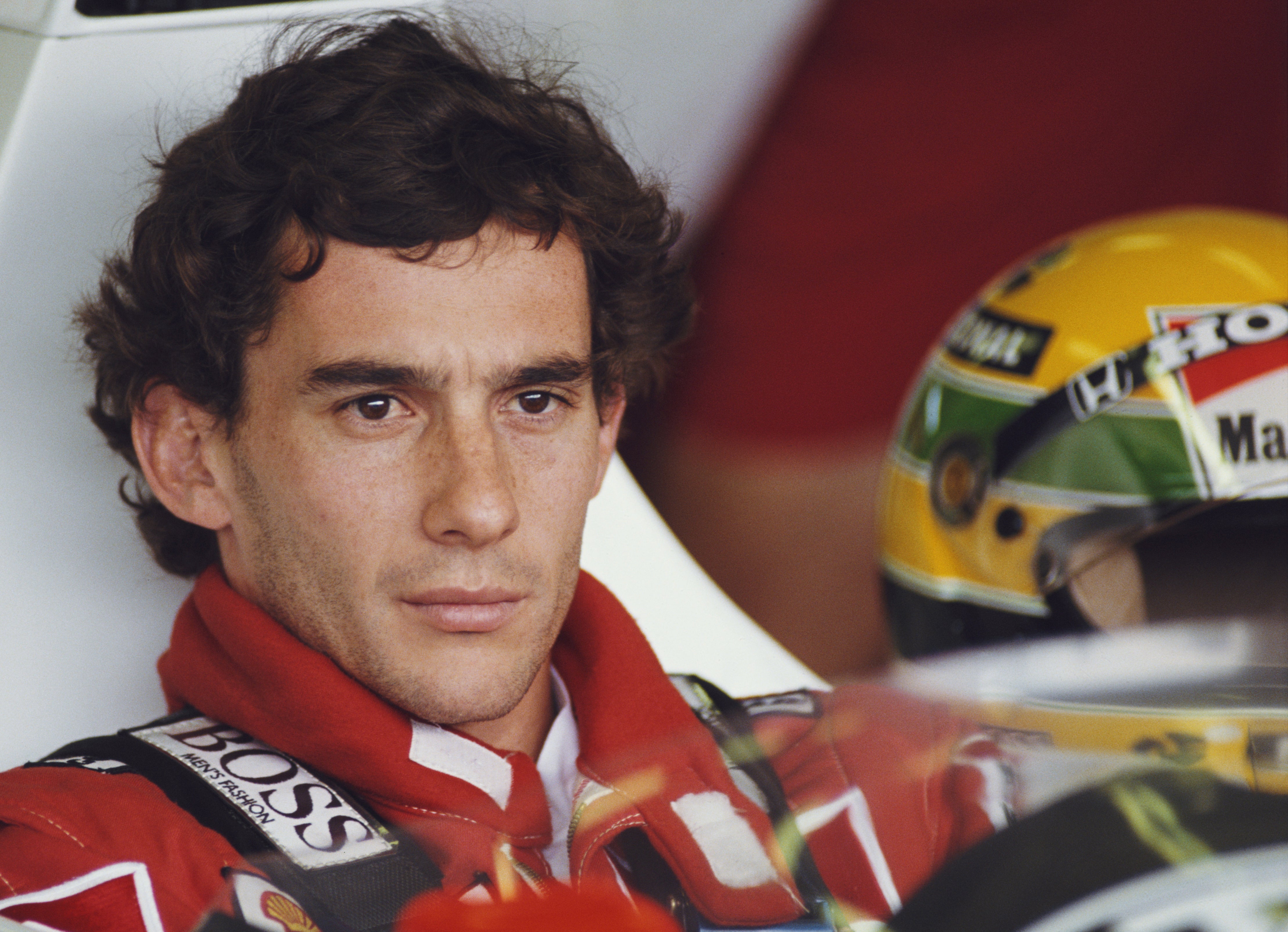There’s something about sport, and the global fandom the lead protagonists generate, which triggers a propensity to hero-worship. Add to that the lives of fallen heroes, particularly those taken too soon, and the deep-rooted desire to remember and reminisce are intertwined with anniversaries and depictions in modern drama. Whether it be Netflix, Prime or Apple TV, they’re all at it.
Yet as 2024 nears its conclusion, there really can be no doubting the omnipresent legacy Brazilian idol Ayrton Senna left on the world.
A few weeks back, Lewis Hamilton drove the 1990 MP5/5B McLaren of his hero in the rain at Interlagos, to the glee of thousands of Brazilians in the grandstands. In May, a commemoration event took place at the Autodromo Enzo e Dino Ferrari (otherwise known as Imola), 30 years to the day since Senna’s death. There’s even a bronze statue of the Brazilian, slumped on a racing tyre, in Walbrzych, Poland, which seems a bit random even for Senna.
But this latest tribute – a bio-drama titled Senna, as was the 2010 Bafta-winning documentary film, streaming on Netflix on Friday – poignantly starts right at the very end. The new six-part series opens with a scene we have probably all seen before.
Fit with accurate advertising boards and an electric in-cockpit vantage point, it depicts Senna (only this time in fictional footage) and his final moments: the Brazilian leading the 1994 San Marino Grand Prix, on lap seven, pounding towards Tamburello corner.
At this point, the footage rolls back three decades, to Sao Paulo and a young boy gifted his first go-kart by his father. From this moment on, this behind-the-curtain tale takes on a predictable running order. From go-karting in Brazil to Formula Ford in the UK, it tells the story of Senna’s thrilling and fast-paced life chronologically, interweaving personal anecdotes from his private affairs and most famous on-track moments.
For Gabriel Leone, a 31-year-old Brazilian actor who sumptuously portrays one of his country’s most glorified figures, it was quite clearly the role of a lifetime.
“He was much more than an F1 driver for us, he became an icon, much beyond his technique and his driving,” Leone said at the Sao Paulo premiere on Tuesday night, a year on from portraying ex-Scuderia driver Alfonso de Portago in the 2023 film Ferrari.
“He had this humanity, this honesty. The things he said, his values, it all made him closer to people. For me as an actor, the more complex the character is, the better. It is more interesting to build him and live him. And this is quite a character, the biggest hero in Brazil, not only in sport.
“Ayrton was transcendent, he was more than an F1 driver. That’s a guy who is the hero of great drivers in history, like [Michael] Schumacher and [Lewis] Hamilton.”
Leone is engaging and charming throughout the six 45-minute episodes, striking an intricate balance between Senna’s twin facades.
On the one hand, the depiction of Senna’s sympathetic side: the Brazilian’s heartfelt desire to trigger change in his poverty-stricken homeland and within his own, dangerous sport. And on the other, the cold-blooded competitor: one capable of mesmerising laps behind the wheel, such as qualifying in Monaco in 1988, and racing to the limit (and perhaps beyond) at the same track four years later, holding off Nigel Mansell by any means necessary.
All of Senna’s highlights (and, we should not forget, lowlights) take a new form in this fresh take on the Brazilian’s topsy-turvy life. With footage switching seamlessly from Portuguese to English depending on the personnel, scenes only previously concocted in the imaginative minds of his followers, from books or interviews in his memory, are now played out in real time.
But in contrast to Asif Kapadia’s 2010 masterpiece – which, ironically, is also streaming now on Netflix – the creative licence available here makes the high-octane racing scenes a clear winner. The rapid switches of focus as Senna changes gears and gains velocity take the viewer to the very heart of what makes racing drivers such unique athletes. No doubt a reported budget of $170m contributed to these finely tuned, dynamic segments.
They are the show’s apex, if you will.

Yet there are flaws. Back to that predictability: if you’re a Senna fan, not much will come as a surprise. Not even those with a dramatic emphasis – such was the glorious archive footage available to Kapadia, 14 years ago – cut through. A clear choice not to delve too deeply into his personal life (his girlfriend at the time of his death, Adriane Galisteu, appears for barely two minutes) feels like a missed opportunity.
Some scenes are a tad placid and nonantagonistic when the intention should have been full-blooded adversarial. Even confrontations late in the day, between Frank Williams and Senna in the garage during F1’s darkest weekend, lack a certain aggressive vigour with lives on the line.
But it will be no surprise if the show proves to be a hit.
Why? Because Senna was, and is, just so universally popular. Both in 1994 and in 2024. The glowing tributes and events in the last 12 months speak to that, with this instalment – directed by Austrian Vicente Amorim – the latest in line.
It seemed inconceivable that a show could elaborate further on F1’s fallen three-time world champion, particularly this year and after Kapadia’s emotional documentary and heart-rending soundtrack. Yet Senna (version two) is an adequate, presentable and easy-to-digest attempt.







